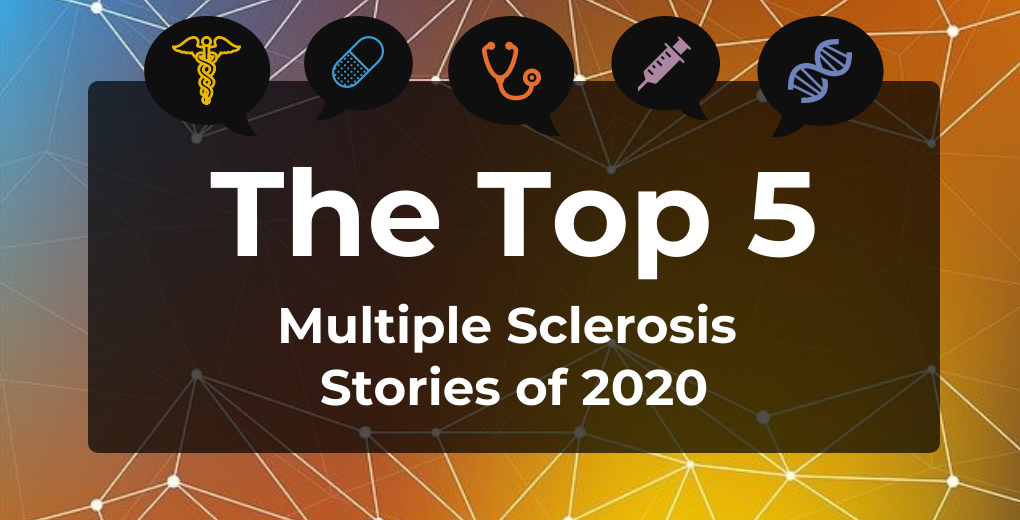
Multiple Sclerosis
Latest News
Latest Videos

CME Content
More News

The German multiple sclerosis (MS) study found differences by gender for some costs, but the overall economic burden of the disease was about the same.

A recent review examines the prevalence of headache among patients with multiple sclerosis, particularly migraine.

The Dutch study sought to add to what is known about the cost-effectiveness of shared decision-making in multiple sclerosis.

Multiple factors come into play when providers and patients discuss a disease-modifying therapy for multiple sclerosis (MS), explains Patricia K. Coyle, MD, of Stony Brook University Neurosciences Institute.

Prior research has found increased colon and breast cancer in patients with multiple sclerosis (MS), but that was not borne out in this current study.

Patients with multiple sclerosis (MS) may not have an increased risk of contracting coronavirus disease 2019 (COVID-19), explained John Corboy, MD, of the University of Colorado Denver, School of Medicine.

The shift to treat patients with pediatric-onset multiple sclerosis (POMS) who are treated earlier with a wider variety of medications has led to better outcomes, according to a recent study.

Ruth Ann Marrie, MD, PhD, director of the Multiple Sclerosis Clinic at the University of Manitoba, discusses how comorbidities affect treatment and options for patients with multiple sclerosis (MS).

Which types of comorbidities have the greatest impact on direct and indirect costs of multiple sclerosis (MS) over time?

Patricia K. Coyle, MD, of Stony Brook University Neurosciences Institute, explains how studies are trying to answer a debate about 2 approaches to treat multiple sclerosis (MS).

Ruth Ann Marrie, MD, PhD, director of the Multiple Sclerosis Clinic at the University of Manitoba, speaks about the overall prevalence of comorbidities in patients with multiple sclerosis (MS).

The study sought to determine if 2 specific types of adverse childhood experiences, abuse and neglect, are linked with multiple sclerosis (MS) and other immune-mediated inflammatory diseases.

The procedure might work best in patients who have had multiple sclerosis (MS) for less than 10 years, the report said.

Quality of life for patients with multiple sclerosis (MS) could be better when they are off medication because they will not have adverse effects related to those medications, said John Corboy, MD, professor of neurology, University of Colorado Denver, School of Medicine.

Two abstracts presented at a recent multiple sclerosis meeting examined depression in pregnancy and pregnancy outcomes in ozanimod trials.

The researchers noted that although it is known that pregnancy is linked to reduced MS activity, the effect of pregnancy before MS diagnosis is unclear.

Differences in clinical and demographic characteristics between men and women with multiple sclerosis (MS) are more prevalent regarding disease course than they are when stratifying by sex.

Rebooting the immune system is an exciting approach, noted John Corboy, MD, professor of neurology, University of Colorado Denver, School of Medicine, and co-director of the Rocky Mountain MS Center at Anschutz Medical Campus.

Older individuals need medications that focus on effects inside the nervous system, explained John Corboy, MD, of University of Colorado Denver, School of Medicine, and Rocky Mountain MS Center at Anschutz Medical Campus.

Research on the long-term use of ozanimod in relapsing forms of multiple sclerosis (MS) has shown the treatment is effective with no new safety concerns.

A recent study explored whether interrupting disease-modifying therapies (DMTs) because of pregnancy leads to increased levels of a specific biomarker of neuroaxonal injury seen in MS.

Tailoring treatment to individual patients is the ultimate goal in the complex decision-making process of managing progressive multiple sclerosis (MS), noted Burcu Zeydan, MD, assistant professor of neurology, assistant professor of radiology, Mayo Clinic.

The results were shared as part of the MSVirtual2020: 8th Joint ACTRIMS-ECTRIMS Meeting, which is concluding Saturday with a special session about coronavirus disease 2019 (COVID-19).

Patients with multiple sclerosis (MS) reported higher rates of harassment and criticism in the workplace than their healthy counterparts, even after informing employers and coworkers about their diagnosis.

Relapse at an older age can significantly contribute to a worsening of multiple sclerosis (MS), explained Burcu Zeyda, MD, assistant professor of neurology, assistant professor of radiology, at Mayo Clinic.



















